'I've got the space and I can't use it': Why psychiatric beds in Phoenix area remain empty
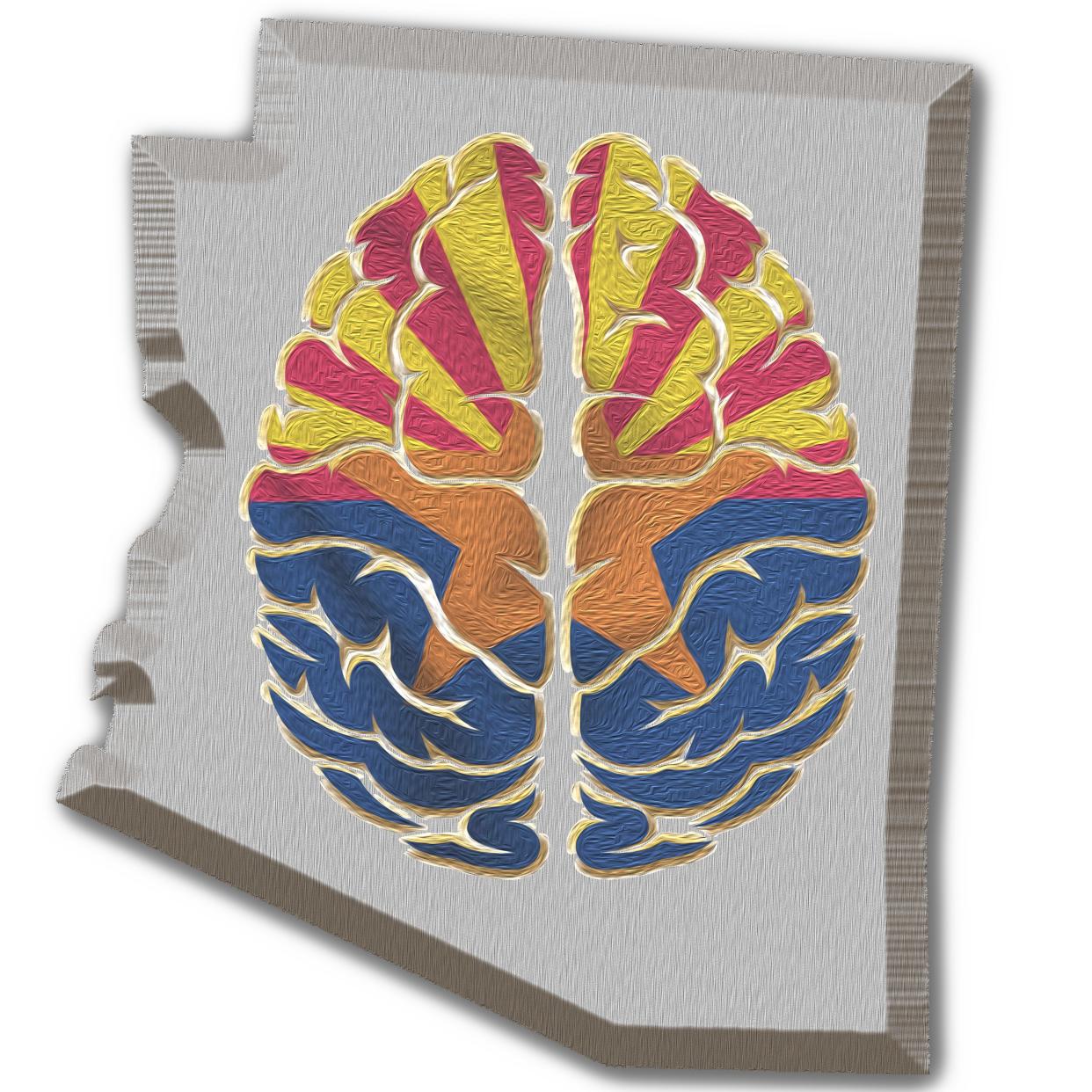
Dozens of psychiatric beds in the Phoenix area have been closed for about a year because of staffing shortages, and the situation likely won't improve for months.
Having closed psychiatric beds means that some patients face long waits in urgent psychiatric crisis centers and in hospital emergency departments or in areas of hospitals that haven't been designated for people with serious mental health issues.
As of May 11, 88 inpatient psychiatric beds were closed across three Valleywise Health facilities, most of them in the health system's hospital in Maryvale.
During the pandemic, Valleywise turned away at least 700 patients who needed either court-ordered mental health evaluation or treatment due to a lack of staffed beds, officials with the health system confirmed with The Arizona Republic.
Valleywise Health is the public health care system for Maricopa County, and it is also the primary provider of inpatient psychiatric beds for Maricopa County residents who have been court-ordered to get mental health care. Maricopa County, which includes Phoenix, is the most populous county in Arizona.
The reason for the shuttered beds is a lack of behavioral health technicians and nurses, said Gene Cavallo, Valleywise Health's senior vice president of behavioral health services, as he recently walked through one of three empty 24-bed psychiatric units at the Valleywise Behavioral Health Center-Maryvale, which opened in 2019.
"Around late 2021 is when the staff challenges happened, where we had quite a few people leave the organization and we seemed to have more problems bringing on new employees," Cavallo said. "It really has been about a year operating at this level."
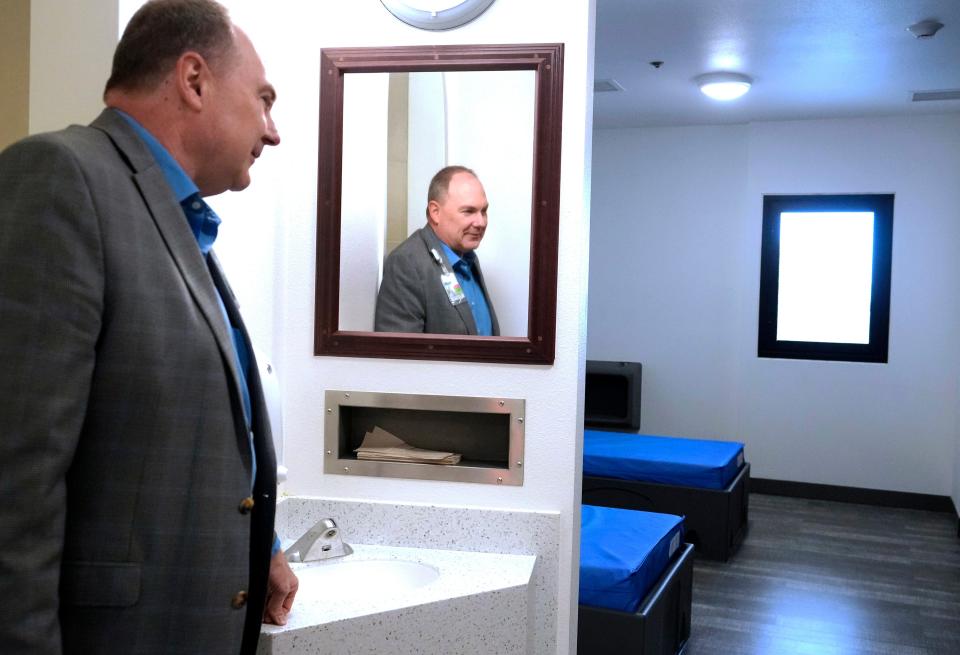
The unit includes the most up-to-date designs for eliminating the chance of self-harm or harm to others — heavy chairs that can't be thrown, windows that can't be opened or broken, toilet paper holders without a spool or spring, and showers with no shower curtain rod.
Valleywise board members Mark Dewane and Mary Rose Wilcox in 2020 touted the addition of 120 inpatient psychiatric beds and a courtroom for mental health hearings in Maryvale as a "dramatic" improvement to mental health care in the state. A second mental health courtroom has since been added at the Maryvale facility.
"Because many Arizona counties do not have resources for court-ordered treatment, Valleywise Health frequently receives referrals from outside Maricopa County. This means Valleywise Health truly is a statewide resource," Dewane and Wilcox wrote in a Feb. 8, 2020, opinion piece published in The Arizona Republic.
"These new facilities provide broad access to quality mental health care for the most distressed in our community – while reducing backlogs and wait times in ERs and urgent psychiatric centers," they wrote.
But now, more than half of those 120 psychiatric beds in Maryvale are not in use.
More: Psychosis first appeared just as her life in Arizona was taking off. How one young woman found help
Closed beds mean some patients linger in crisis centers
The empty beds are causing certain patients to get stuck, in some cases for days, in urgent psychiatric crisis centers as they wait for mental health evaluations.
Some people in a mental health crisis who are endangering themselves or others, or whose mental illness is significantly impairing their ability to take care of themselves, will volunteer to get treatment on their own. But for individuals who are unwilling, there's an involuntary treatment process. The first step in that process is an application for involuntary evaluation, which is often filed by a family member, case manager or a concerned person such as a neighbor.
A mental health facility, often a psychiatric crisis center, will then conduct a pre-screening evaluation and may file a petition to a Maricopa County mental health court for court-ordered evaluation.
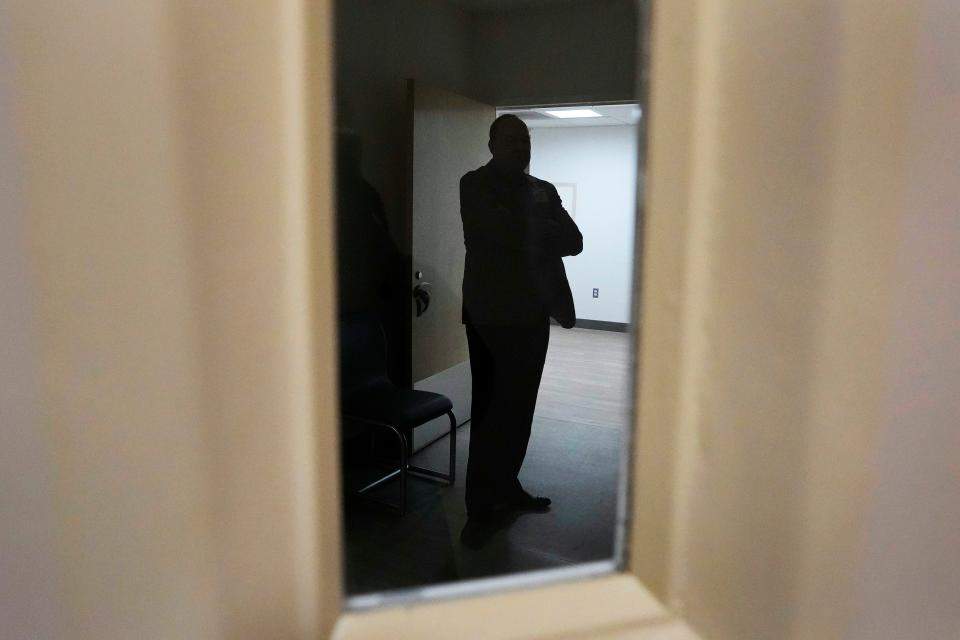
Under state law, there's a 72-hour window, or three business days, for patients in a mental health crisis to be detained while they are evaluated for court-ordered treatment, if a petition for such an evaluation has been filed and approved by a judge. The evaluation is completed by two physicians, usually psychiatrists, who meet with the patient separately.
At that point, the physicians who conducted the evaluation will consult with one another and may recommend immediate treatment, which means a hearing will be held in a county mental health courtroom and the patient will be assigned a lawyer. After a hearing, a judge could order inpatient or outpatient treatment, or a combination of the two.
However, the court-ordered evaluations aren't always happening within 72 hours. The evaluation typically needs to be completed while a patient stays either in a Valleywise inpatient psychiatric bed or at one of 16 beds in Phoenix that were recently designated for court-ordered evaluations at a 24/7 urgent psychiatric center operated by Connections Health Solutions, Cavallo said.
More: Serious mental illness often emerges in young adulthood. Here's how to get help
The addition of the 16 beds at Connections Health Solutions is part of a $2.56 million pilot program to expand behavioral health services in Maricopa County. The pilot program began on Jan. 20 after a county task force found that some people who needed mental health evaluations for court-ordered treatment were falling through the cracks.
"That's not safe for them or the community," County Supervisor Bill Gates said when the pilot program was announced.
On any given day, people in Maricopa County "time out," meaning a petition was approved by a Maricopa County Superior Court judicial officer and the 72-hour time period ran out before the evaluation for court-ordered treatment could be completed, Cavallo said. When that happens, the patients either are free to leave, or they agree to voluntary treatment, or a whole new petition is filed, Cavallo said.
In some cases, lawyers for the patients who work for the county's Office of the Public Advocate have argued that patients' civil rights are being violated if petitions are refiled, he said.
"They've been arguing that people who have been re-petitioned once or twice violates their rights because they've had to sit there for days on end without being evaluated," Cavallo said. "It's not a new phenomenon, but the causes of the current crisis I think are new, which is not having enough staff. It used to be it was not having enough beds."
Cavallo says reopening the beds would make a big difference in preventing patients from timing out.
There is some hope of that happening as Valleywise ramps up its staff recruitment and retention efforts.
COVID-19 relief money is expected to help reopen the beds
Valleywise received federal American Rescue Plan grants totaling $20.6 million combined via Maricopa County and the Governor's Office that will go into a program called SOAR — Sign On And Retention Bonus.
The SOAR program will give behavioral health employees at Valleywise bonuses of $4,000 to $18,000 if they make a two-year commitment to work in the health system.
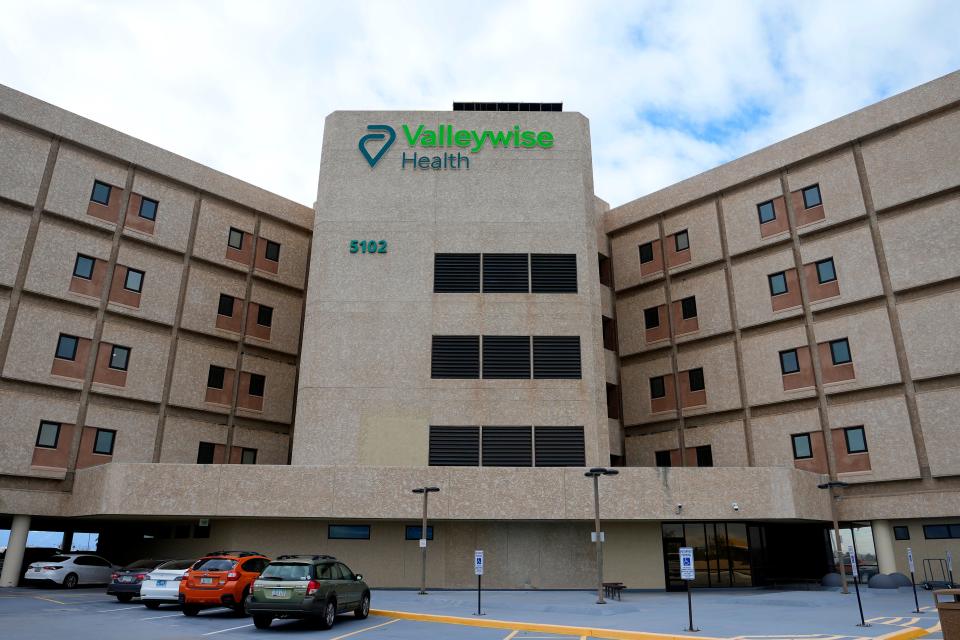
The health system is also actively recruiting new behavioral health employees, which ideally will allow Valleywise to staff and open additional inpatient psychiatric units, Cavallo said.
About 150 staff members, including behavioral health nurses, technicians and health care coordinators, will be needed to open the three currently closed units at Maryvale, he said.
"Conservatively, we're hoping to open one of the units at the end of December, end of January, so not horribly far off," Cavallo said. "All these years up to recently were all about, 'More space, more space.' Now I've got the space and I can't use it ... We have to hire and we have to retain."
Cavallo said that in his 18-year tenure at Valleywise, the health system has gone from having 90 inpatient psychiatric beds to the current 411.
Related New hospital in Mesa seeks to address bed shortage for mental health patients
While Maricopa County's population continues to grow, Cavallo said improving community prevention efforts and better managing people who are getting court-ordered outpatient treatment could help reduce the need for yet more beds.
"One of the challenges is looking at the rest of the behavioral health delivery system and making sure that we're getting people who might need help identified and treated before it gets to the point that they involuntarily have to be forced to get it," he said.
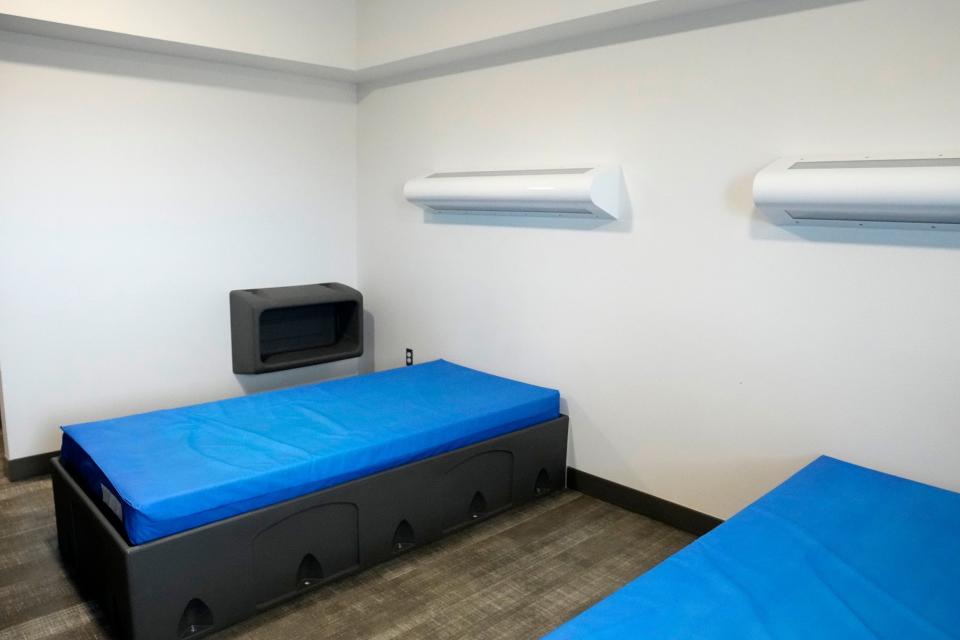
Once people have been placed on court-ordered treatment in a psychiatric hospital bed to get stabilized, they often must get outpatient treatment for a year minus the time they were hospitalized. Too often those patients are getting rehospitalized within a year or so, Cavallo said. The maximum period for court-ordered treatment in Arizona is 365 days.
"In that year I think the system could do a better job of making sure that they are off to a good start. Because once the court order ends, we see a lot of those individuals a year or two years later come back in and start the whole thing over.
"If we don't do that, there's not any amount of beds that would be able to cover this ever-expanding need."
Reach health care reporter Stephanie Innes at Stephanie.Innes@gannett.com or at 602-444-8369. Follow her on Twitter @stephanieinnes.
This article originally appeared on Arizona Republic: Why Phoenix-area psychiatric beds are closed

